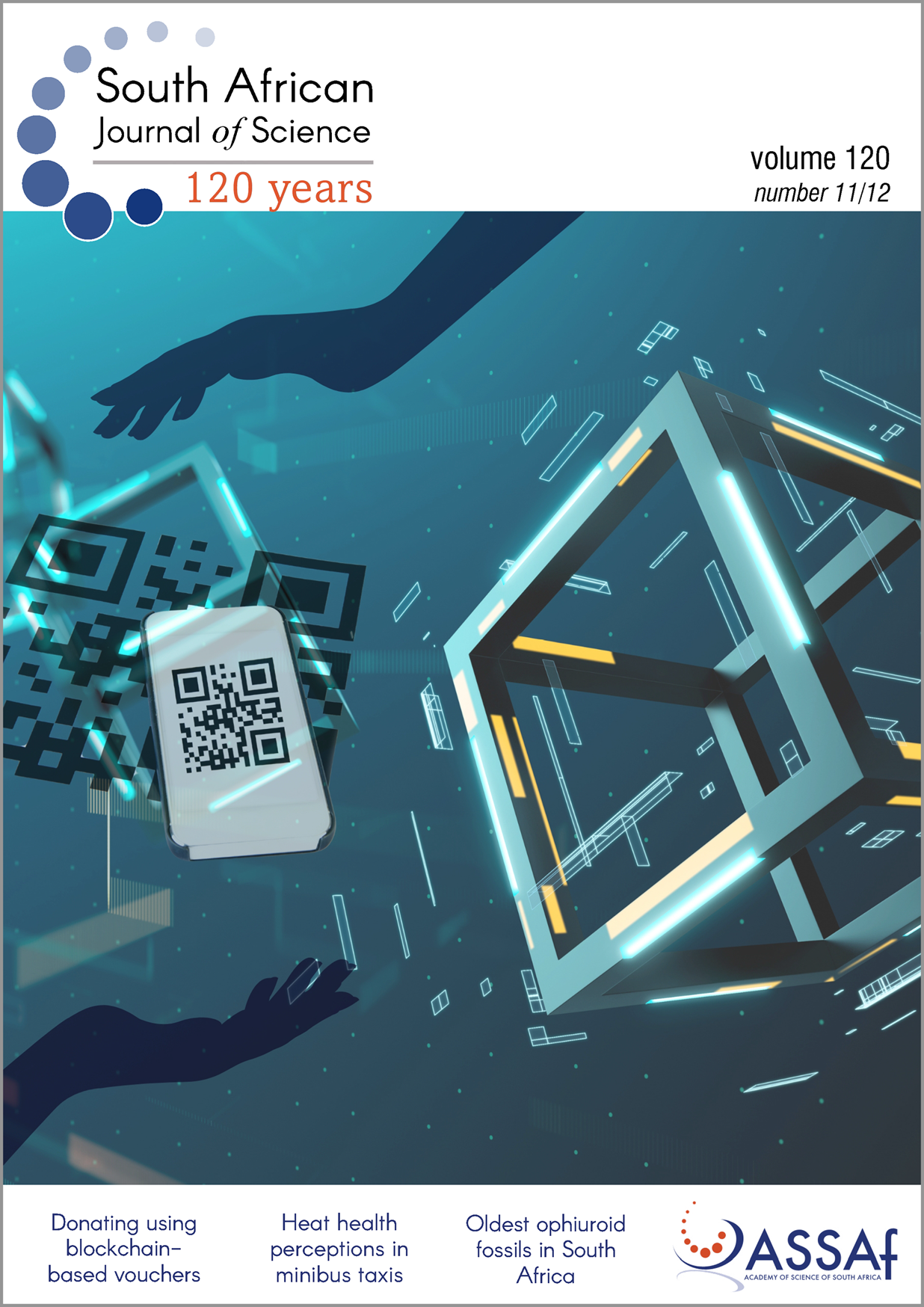Assessing heat-related health perceptions in the minibus taxi industry in Tshwane, South Africa
DOI:
https://doi.org/10.17159/sajs.2024/18030Keywords:
climate change, environmental health, global warming, health risks, heat stressAbstract
Global warming, the increase in heatwaves and periods of intense heat, is a major problem across the world, including in South Africa. Heat exposure has adverse health impacts, ranging from dehydration and heat stroke to death. The transport sector and its users are vulnerable to heat exposure both in vehicles and in places where they wait for transport. We investigated the heat perceptions and experiences of minibus commuters and the minibus taxi industry in minibus taxis and minibus taxi ranks to inform an intervention to prevent adverse health impacts from heat exposure in the City of Tshwane. Commuters (n = 279), drivers and marshals (n = 46) reported feeling hot in minibus taxis and minibus taxi ranks, experiencing sweating, headaches, exhaustion and dizziness. Some participants reported opening windows and doors, drinking water/cold drinks, removing a jersey and fanning themselves to try and cool down. All participants suggested solutions to address heat exposure in minibus taxis and minibus taxi ranks, including more shelters and trees for shade, the provision of water, benches and potentially an air-conditioned building for waiting/holding periods between trips. In consultation with our stakeholders, we prepared educational awareness materials about heat risks to health and actions to take when it is hot, and these were distributed through the minibus taxi sector in the City of Tshwane. Future research needs include measuring temperatures in these settings and rolling out large-scale interventions to protect health and well-being in a changing climate.
Significance:
Heat exposure has adverse health impacts, ranging from dehydration to death. The transport sector and its users are vulnerable to extreme heat. We investigated the heat experiences and perceptions of minibus commuters and the minibus taxi industry to inform an intervention to prevent adverse health impacts from heat exposure in the City of Tshwane. We prepared educational awareness materials about heat risks to health and actions to take when it is hot, and these were distributed through the minibus taxi sector. Future research needs include measuring temperatures in these settings and rolling out large-scale interventions to protect health and well-being in a changing climate.
Downloads
Published
Issue
Section
License

All articles are published under a Creative Commons Attribution 4.0 International Licence
Copyright is retained by the authors. Readers are welcome to reproduce, share and adapt the content without permission provided the source is attributed.
Disclaimer: The publisher and editors accept no responsibility for statements made by the authors
How to Cite
- Abstract 1079
- PDF 838
- EPUB 323
- XML 114
- Peer review history 438












.png)